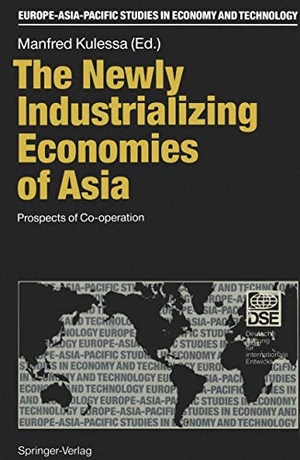Für statistische Zwecke und um bestmögliche Funktionalität zu bieten, speichert diese Website Cookies auf Ihrem Gerät. Das Speichern von Cookies kann in den Browser-Einstellungen deaktiviert werden. Wenn Sie die Website weiter nutzen, stimmen Sie der Verwendung von Cookies zu.
Cookie akzeptieren
The Newly Industrializing Economies of Asia
- Springer Berlin Heidelberg
- 2012
- Taschenbuch
- 376 Seiten
- ISBN 9783642757075
Where development is concerned, our language and perhaps our way of thinking often ap pear somewhat distorted. If anything, the Asian economies with their most impressive and dynamic growth should logically be called developing countries. Instead, we call them threshold countries, newly industrializing countries (NICs) or newly industrializing eco nomies (NIEs), the latter term taking into account the Chinese argument that Hong Kong and Taiwan should not be considered countries. During the eighties, when Latin American NICs became the main victims of the debt crisis, the NIEs of East Asia (EANIEs), the little tigers or dragons, presented most impres sive examples of growth through orientation to
Mehr
Weniger
zzgl. Versand
in Kürze